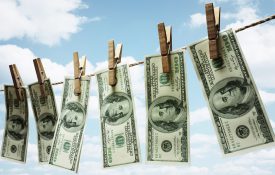-
How The Concept Of Implicit Bias Came Into Being
NPR: Implicit bias - that term has been used a lot lately after several high-profile shootings of black men by police. DAVID GREENE, HOST: And it's also become a divisive topic in this presidential election. The term refers to how attitudes or stereotypes can affect what we say and do without a person being conscious of it. MONTAGNE: To find out more about where this concept comes from, we turn to Mahzarin Banaji. She and another psychologist, Anthony Greenwald, wrote a book called "Blindspot," outlining a theory they came up with 20 years ago known as implicit bias. And she told us about the moment she realized our decisions are guided by forces we're not even aware of.
-
Brain training – why it’s no walk in the park
The Conversation: You’ve probably heard of “brain training exercises” – puzzles, tasks and drills which claim to keep you mentally agile. Maybe, especially if you’re an older person, you’ve even bought the book, or the app, in the hope of staving off mental decline. The idea of brain training has widespread currency, but is that due to science, or empty marketing? Now a major new review, published in Psychology in the Public Interest, sets out to systematically examine the evidence for brain training. The results should give you pause before spending any of your time and money on brain training, but they also highlight what happens when research and commerce become entangled.
-
High Schoolers Are Less Stressed When You Remind Them People Eventually Stop Being High Schoolers
New York Magazine: Looking back to high school can be a little bit like looking at your past through one of those fun-house mirrors. When I compare my high-school problems to my current, real-life problems, I’m struck by how much everything is inverted: In hindsight, the issues that my 16-year-old self had to deal with were all pretty small potatoes, but everything just felt so much bigger. High school’s stressful like that — it’s a time characterized by a lopsided ratio of drama to perspective, with too much of the former and not nearly enough of the latter.
-
False memories: from the lab to the courtroom
The Guardian: For decades now, we’ve known that our memories are not as infallible as we like to think. And with research now showing that researchers are able to plant entirely novel memories that never actually happened – the need for psychological research in the courtroom has never been more pressing. But as we find out, the world of false memory is a murky and uncertain one. Helping Ian Sample clear the way this week is London South Bank University Criminologist and Expert Witness Dr Julia Shaw, and – one of the field’s most prominent pioneers - Professor Elizabeth Loftus, who bravely used much of her expertise during the “Satanic Panic” of the 1980s. Read the whole story: The Guardian
-

How Dishonest Behavior Can Turn Into Corporate Misconduct
Focusing on customer service can help to boost business performance, but high ethical standards also play an important role in driving these outcomes, researchers find.
-
Teaching Teenagers to Cope With Social Stress
The New York Times: Almost four million American teenagers have just started their freshman year of high school. Can they learn better ways to deal with all that stress and insecurity? New research suggests they can. Though academic and social pressures continue to pile on in high school, teenagers can be taught effective coping skills to skirt the pitfalls of anxiety and depression. David S. Yeager, an assistant professor of psychology at the University of Texas at Austin and a leading voice in the growing effort to help college students stay in school, has been turning his attention to younger teenagers to help shore up their resilience at an earlier age.

